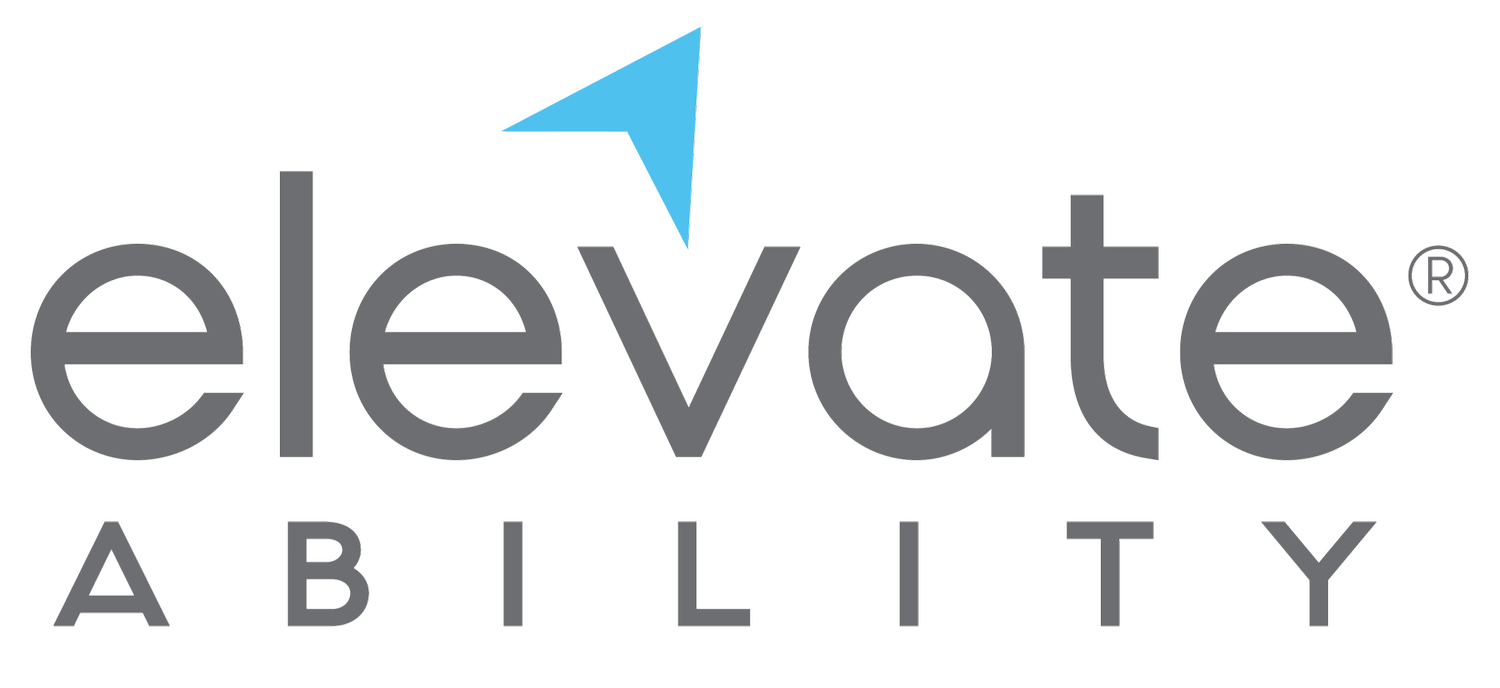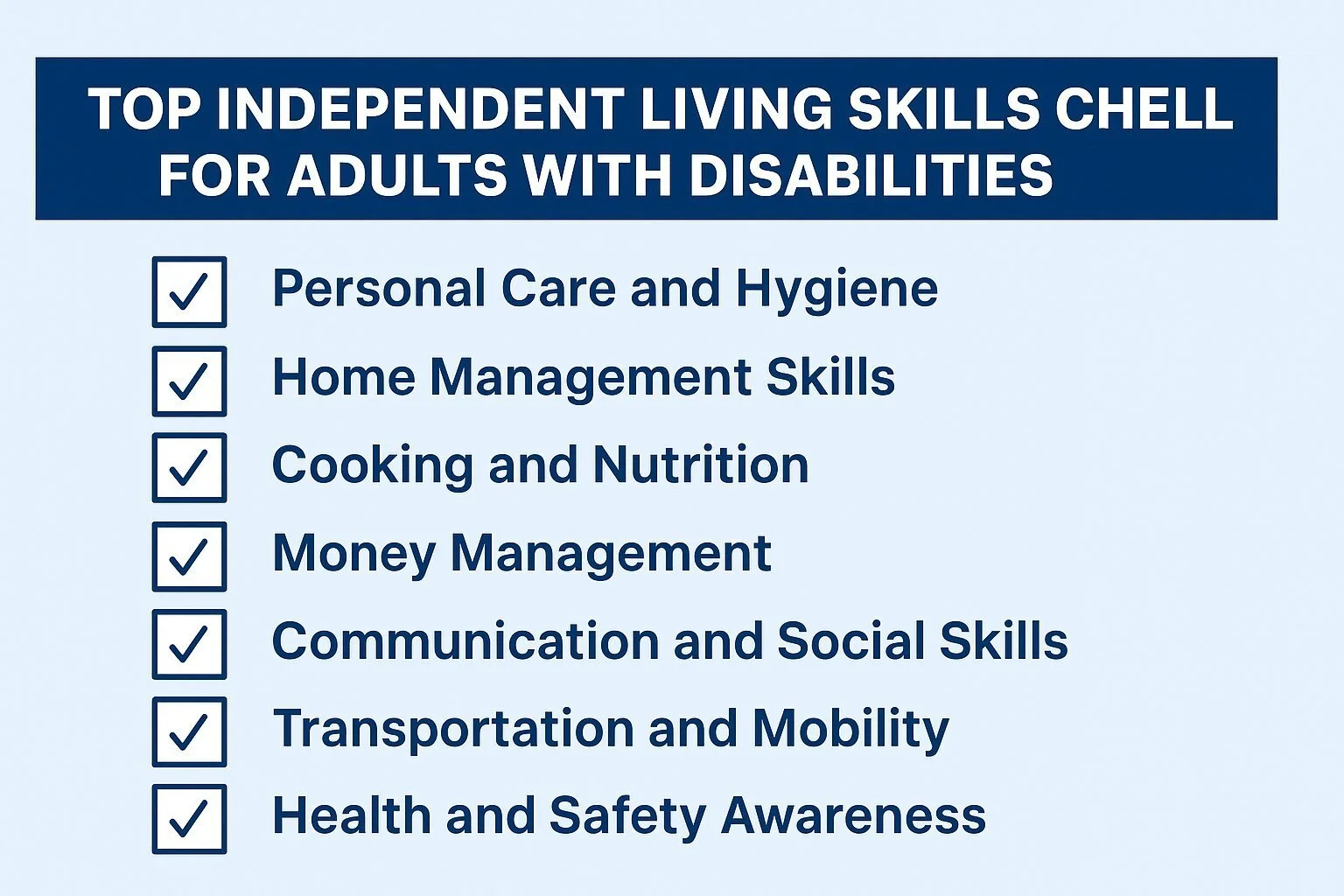Top Essential Independent Living Skills Checklist for Adults with Disabilities
Independent living for adults with disabilities is about more than just managing day-to-day tasks. It focuses on gaining confidence, freedom, and control to make choices that shape one’s own life. Whether it is preparing meals, handling money, or maintaining personal hygiene, developing these essential skills builds a foundation for autonomy and a sense of accomplishment.
Learning and strengthening daily living skills play a crucial role in promoting self-sufficiency. These abilities empower individuals to participate more actively in their communities, pursue education or employment opportunities, and maintain a higher quality of life. With the right support and consistent practice, independent living becomes both achievable and deeply fulfilling.
To make this journey smoother, a structured independent living skills checklist can be a valuable tool. It helps adults with disabilities, along with caregivers and support professionals, track progress, recognize strengths, and identify areas that need more focus. This checklist serves as a personalized roadmap toward independence, ensuring steady growth at every step through practical independent living skills activities for disabled adults.
What Are Independent Living Skills?
Independent living skills refer to the everyday abilities that help individuals manage their personal and household responsibilities effectively. These skills are essential for navigating daily life with confidence and allow adults with disabilities to function more independently in their homes and communities.
Developing these abilities plays a key role in promoting autonomy and reducing dependency on others. When individuals are equipped with the right set of skills, they gain greater control over their routines, decisions, and personal well-being. This not only enhances self-esteem but also contributes to a higher quality of life.
Independent living skills can include a wide range of activities such as managing money, cooking nutritious meals, maintaining personal hygiene, cleaning, using transportation, and participating in community programs. Building competence in these areas supports adults with disabilities in living a more independent, safe, and fulfilling life.
Why Independent Living Skills Matter for Adults with Disabilities
Independent living skills are vital for helping adults with disabilities achieve a greater sense of control, confidence, and independence in their daily lives. These skills not only improve practical functioning but also contribute to emotional and social well-being.
Builds confidence and self-esteem: Learning to manage daily tasks independently helps adults with disabilities feel more capable and confident in their abilities.
Promotes social inclusion: Gaining practical life skills encourages participation in community activities, education, and employment, helping individuals form stronger social connections.
Improves emotional well-being: Independence reduces feelings of helplessness and increases a sense of control, leading to greater emotional stability and happiness.
Encourages personal growth: Mastering new skills allows individuals to set goals, take initiative, and experience a sense of accomplishment.
Supports a better quality of life: The ability to handle essential daily routines such as cooking, cleaning, or managing money contributes to a healthier and more balanced lifestyle.
Highlights the importance of personalized learning: Every individual learns differently, so it is important to progress at one’s own pace and with patience, ensuring comfort and understanding at each step.
Involves valuable support systems: Caregivers, occupational therapists, and independent living programs play a crucial role in teaching, guiding, and reinforcing these skills in a safe and supportive environment.
A Complete List of Independent Life Skills Checklist for Disabled Adults
Developing independent living skills is a gradual process that involves mastering different areas of daily life. Each skill category contributes to building confidence, safety, and self-reliance. The checklist below outlines the essential areas that help adults with disabilities lead a more independent and fulfilling life.
A. Personal Care and Hygiene
Maintaining personal hygiene is a fundamental aspect of independence. It includes activities such as bathing, grooming, dressing appropriately, and managing personal hygiene products. Establishing consistent daily routines helps individuals stay organized and confident in managing their personal care needs. Practicing these routines also supports better health and social comfort.
B. Home Management Skills
Keeping a clean and safe living environment promotes physical well-being and emotional comfort. Key skills include cleaning, organizing personal space, doing laundry, and ensuring household safety. It is also important to learn how to use appliances safely and efficiently, such as washing machines, microwaves, and vacuum cleaners, to maintain a tidy and functional home.
C. Cooking and Nutrition
Preparing nutritious meals is an important step toward self-sufficiency. Adults with disabilities can benefit from learning basic meal preparation, safe food handling, and making healthy food choices. Using kitchen tools properly and following simple recipes can help develop confidence in cooking. Over time, these skills encourage healthier eating habits and a sense of accomplishment in preparing one’s own meals.
D. Money Management
Understanding how to manage money is a key part of living independently. This includes learning to budget, handle cash or cards, pay bills on time, and save for future needs. Visual aids, budgeting charts, or mobile apps can make it easier to track expenses and stay organized. Building these financial habits helps reduce dependency and improves decision-making in everyday life.
E. Communication and Social Skills
Effective communication allows individuals to express their needs clearly and maintain positive relationships. Learning how to interact respectfully, ask for help, and handle social situations builds self-assurance. Participation in community programs, social groups, or volunteer activities can further strengthen these skills and enhance social confidence.
F. Transportation and Mobility
The ability to travel independently increases access to work, education, and community activities. Skills in using public transportation, reading schedules, and navigating routes safely are essential for mobility. Practicing independence under supervision helps individuals gain confidence in traveling while ensuring safety. Over time, these skills support a greater sense of freedom and participation in community life.
G. Health and Safety Awareness
Staying healthy and safe is central to independent living. Individuals should learn to recognize their medical needs, take prescribed medications correctly, and understand basic emergency procedures. Creating an emergency contact list and learning basic first aid can make a significant difference in handling unexpected situations. These habits help ensure safety and preparedness at all times.
Conclusion
Independence looks different for everyone, and progress should always be measured by personal growth, not comparison. A life skills checklist for adults acts as a helpful guide to track abilities and set realistic goals. Using an independent living skills assessment can highlight strengths and areas for improvement, supporting steady growth. ElevateAbility offers specialized courses and coaching programs that focus on building independent living skills for adults with disabilities, including personal care, money management, and communication. With the right support and consistent effort, every small achievement becomes a step toward greater independence and a more confident, fulfilling life.
Frequently Asked Questions
1. How to teach independent living skills?
Teaching independent living skills begins with breaking tasks into simple, manageable steps and practicing them consistently. At ElevateAbility, we use checklists, visual aids, and real-life demonstrations to help adults with disabilities gain confidence in daily routines like personal care, cooking, and money management. Our coaching supports gradual independence and is tailored to each individual’s pace and abilities.
2. What are the independent living skills objectives?
The objectives of independent living skills are to help adults with disabilities:
Develop self-sufficiency: Manage daily tasks with minimal support.
Enhance confidence: Build self-esteem through mastery of practical skills.
Promote social participation: Engage in community, work, and social activities.
Improve safety and health: Understand basic hygiene, nutrition, and emergency procedures.
Support long-term independence: Prepare for meaningful, autonomous living in personal and community settings.
These objectives guide the learning process and ensure measurable progress.
3. What is the basic independent living skills assessment?
A basic independent living skills assessment evaluates an adult’s ability to perform essential daily activities independently. It typically covers areas such as:
Personal care and hygiene
Meal preparation and nutrition
Household management
Money management
Communication and social skills
Transportation and mobility
Health and safety awareness
The assessment helps identify strengths, areas for improvement, and the level of support required. Tools may include checklists, observation, interviews, or structured evaluations, and they inform personalized learning plans or coaching programs.

